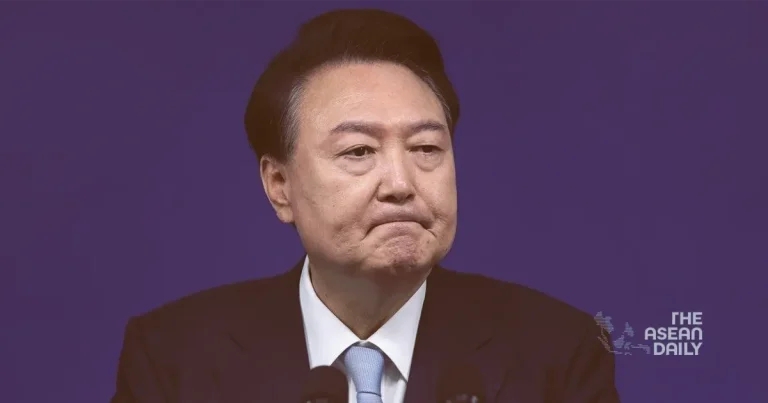13-2-2025 (SEOUL) Impeached President Yoon Seok Yeol is set to face what could be his final constitutional court hearing today, marking a crucial juncture in the nation’s most significant political crisis in recent memory.
The embattled former head of state, who made history as South Korea’s first sitting president to be arrested, will confront allegations surrounding his controversial December attempt to impose martial law – a move that lasted merely six hours before being quashed by parliament.
Today’s proceedings at Seoul’s Constitutional Court will feature testimony from key figures, including the former chief of South Korea’s intelligence service and a senior official from the Capital Defence Command, the military unit that was deployed to parliament during the brief martial law crisis.
Legal experts anticipate that the nine-member Constitutional Court bench – currently operating with eight judges – will likely reach a unanimous verdict supporting the impeachment. “The legal community broadly expects the judges to deliver a united front in favour of upholding the impeachment,” notes Dr James Wilson, a senior fellow at the East Asian Legal Studies Centre.
The deliberation period typically spans between 11 to 14 days, as evidenced by previous presidential impeachment cases involving Park Geun-hye and Roh Moo-hyun. Should the court validate the impeachment, South Korea would be required to hold fresh presidential elections within 60 days.
Yoon, a former prosecutor who has maintained an unwavering stance throughout the proceedings, faces separate criminal charges of insurrection. During recent hearings, he sparked controversy by suggesting that hypothetical plans to arrest MPs would not constitute a legal violation if not executed.
Conservative supporters have mounted pressure for additional hearings, potentially extending the timeline. The situation is further complicated by the pending appointment of a ninth judge to complete the Constitutional Court’s bench.
The case has ignited intense debate over the constitutional boundaries of presidential power, particularly regarding the implementation of martial law, which is strictly limited to periods of national emergency or wartime conditions.




